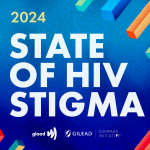While students around the country began packing up their books and heading back to school early in September, the pharmaceutical industry was already getting its grades sent home. But are they proudly displaying their grades on the fridge or hiding them from the ’rents?
Issued by the AIDS Treatment Activists Coalition (ATAC) on September 10, the Pharmaceutical Company HIV/AIDS Report Card graded the largest pharmaceutical companies with HIV drugs on the market in five key categories: drug development portfolio and plans, access to drugs, pricing, community relations and marketing practices. The report card aimed to acknowledge good work in the field, while at the same time highlighting what changes need to be made to better serve people living with the virus.
“There’s a feeling that we’re still not there yet with the ultimate therapies that people can take and live a high-quality life with for 30 to 40 years,” says Bob Huff, antiretroviral project director for the New York City–based Treatment Action Group and board member of the ATAC rating group.
Companies graded in the report card are Abbott Laboratories, Boehringer Ingelheim, Bristol-Myers Squibb, Gilead Sciences, GlaxoSmithKline, Merck, Pfizer, Roche and Tibotec Therapeutics. Merck and Tibotec scored the highest with B averages, while Abbott received the lowest score, an F, for its 400 percent price increase on Norvir in 2003. The industry received a C- overall.
“The ATAC membership really felt that there’s room for improvement,” Huff says. “I want to see companies get As. It would mean they were really being responsive, and it would mean that the report card is doing what it is intended to do.”
The group hopes to issue report cards on a regular basis if members feel change in the industry is noteworthy enough. “Frankly, we closed out this voting in June, and there’s change happening already,” Huff says. “So we think it may be useful to do it on an annual basis or every other year.”
Michael Seggev, senior director of U.S. HIV Marketing for Merck, told POZ that the report card is a concrete way to keep pharmaceutical manufacturers in tune with the specific needs of the HIV community.
“ATAC has laid a nice foundation [with this report card],” Seggev says. “There’s good context to say more objectively how we are doing and how we can do better. My goal is to have a better grade next time.”
POZ reached out to each of the companies graded. Here are their responses to the ATAC report card.
Abbott Laboratories
Average grade: F
Director of Public Affairs Dirk van Eeden said: “The activist community is an important stakeholder for us, so we take note of what they say. However, if you look at our track record with the HIV community globally, you will notice—and it speaks for itself—that we not only discovered and developed lifesaving medicines, but we’ve played our part in making those medicines available to people.
“If you look at the United States, our patient assistance programs are among the most generous. But beyond that, if you look at the global impact—particularly those countries that are hardest hit by HIV—we’ve implemented very specific measures to make sure that the people who need our medicine can get it.”
Boehringer Ingelheim
Average grade: D+
A company spokesperson said: “Boehringer Ingelheim welcomes perspectives provided by HIV/AIDS advocacy organizations. During the past three years, Boehringer Ingelheim has held community advisory boards on a regular basis and continues to receive valuable input from the community.
“Boehringer Ingelheim markets the HIV medications Aptivus (tipranavir) tablets/oral solution and Viramune (nevirapine) capsules/oral suspension and is proud of its contributions to the fight against HIV/AIDS. Boehringer Ingelheim is committed to ensuring that patients who need Aptivus and Viramune have access to the medications.
“The Boehringer Ingelheim Cares Foundation Patient Assistance Program (BI PAP) provides free medications to eligible patients in financial need who are without prescription drug coverage. Boehringer Ingelheim is also launching a co-pay assistance program later in 2009.”
Bristol-Myers Squibb
Average grade: C-
A company spokesperson said: “We are disappointed by ATAC’s evaluation and believe the ratings do not accurately reflect Bristol-Myers Squibb’s significant work in HIV drug development, the breadth of HIV disease awareness and product education programs we offer patients and our 20-year commitment to the HIV patient community. “However, we value feedback from the advocacy community and will continue to collaborate with ATAC and other groups to help meet the needs of people living with HIV/AIDS.”
Gilead Sciences
Average grade: C+
A company spokesperson said: “Gilead takes seriously its social commitment to ensuring patients who need our HIV medicines receive them worldwide, regardless of income or geography. Every day, Gilead strives to enhance the care and treatment of people living with HIV through new drug research and post-approval studies, through responsible pricing and through a platform of patient support programs.
“Since the introduction of Viread, Gilead’s first antiviral agent for HIV, we have embraced partnerships with HIV community advocates and organizations. The ongoing dialogue we have with groups such as ATAC is invaluable to ensuring we are addressing the needs of patients living with HIV.”
GlaxoSmithKline
Average grade: C-
Director of Product Communications Marc Meachem said: “This report reflects a desire by ATAC to consult more closely with GSK, and we are equally committed to building a more collaborative dialogue with ATAC. Over the last few months, GSK has had several meetings with ATAC members on our integrase development program, and input from these discussions has been integrated into our study protocols. We hope that our responsiveness and flexibility in working with the community will be taken into consideration for future ratings. GSK remains committed to the HIV community and looks forward to building better awareness of all the work we are doing to support HIV patients.”
Merck
Average grade: B
Senior Director of U.S. HIV Marketing Michael Seggev said: “Merck is very pleased to achieve the highest grade in the industry in the report card from ATAC, the most representative and respected coalition of HIV community groups in the U.S. This reflects Merck’s commitment to HIV, with 25 years of HIV research and two decades of working closely with the HIV community.
“We have always benefited and learned from our close collaboration with the HIV community and share their goals. We also appreciate their ongoing commitment to keeping industry focused upon what is important in HIV. While pleased with the report, we will focus upon the areas for improvement noted by ATAC and work hard to improve our performance in these areas. Merck remains highly committed to HIV research, treatment and prevention, and while proud of our achievements to date, we feel there is much more to be done.”
Pfizer
Average grade: C+
A company spokesperson said: “Pfizer values the opinions of the HIV treatment and advocacy community including those of the AIDS Treatment Activists Coalition (ATAC). Pfizer believes in the importance of making life-improving medicines available to those in need. In the U.S., the Pfizer RSVP Program offers reimbursement support and patient assistance to help patients gain access to Pfizer HIV medicines, including Selzentry (maraviroc) tablets.
“Pfizer has been committed to an open dialogue with the HIV treatment community and has regularly sought input on ways to improve access to livesaving medicines.”
Roche
Average grade: D
A company spokesperson said: “Roche holds ATAC and other HIV advocacy organizations in high regard but is disappointed with the results for Roche in the report card. We took a tremendous risk in developing the first-in-class fusion inhibitor, Fuzeon, and consistently engaged the community during its development—including collaboration on the design of Phase III studies and patient assistance programs. The medicine saved lives at a time in history when people with HIV needed new treatment options. The development of this complex medicine was associated with high R&D and manufacturing costs, and despite efforts to improve manufacturing efficiencies, the medicine is still extraordinarily expensive to produce. Despite these hurdles, Roche is committed to ensuring patients who need the medicine have access to it.”
Tibotec Therapeutics
Average grade: B
President Glenn Mattes said: “We have worked purposefully and sincerely in developing our relationship with the HIV community since the company’s inception. The HIV community has played a vital role in helping us develop our access programs and pricing approach, as well as GRACE, the largest women’s study of its kind.
“Our partnerships with the community have had a positive impact on the people living with HIV whom we serve.”
To read the report card, visit atac-usa.org.
Making the Grade
The AIDS Treatment Activists Coalition has issued its first report card grading nine major pharmaceutical companies on their efforts to combat HIV/AIDS and improve the lives of those living with the virus. Here’s what those companies had to say about the results.






8 Comments
8 Comments